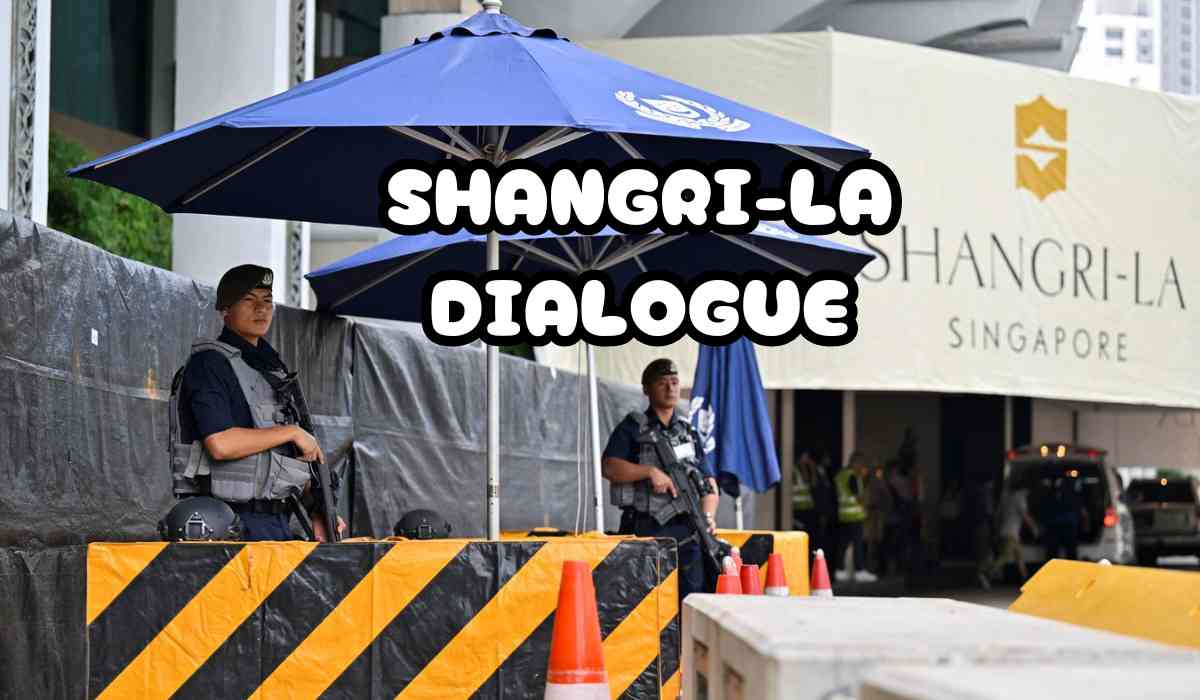As global tensions reach a crescendo, all eyes turn to the Shangri-La Dialogue, where China's rising power takes center stage amidst pressing issues including US-China relations, China-Taiwan tensions, Russia-Ukraine conflict, Myanmar unrest, US role in the Indo-Pacific, maritime security and Middle East tensions.
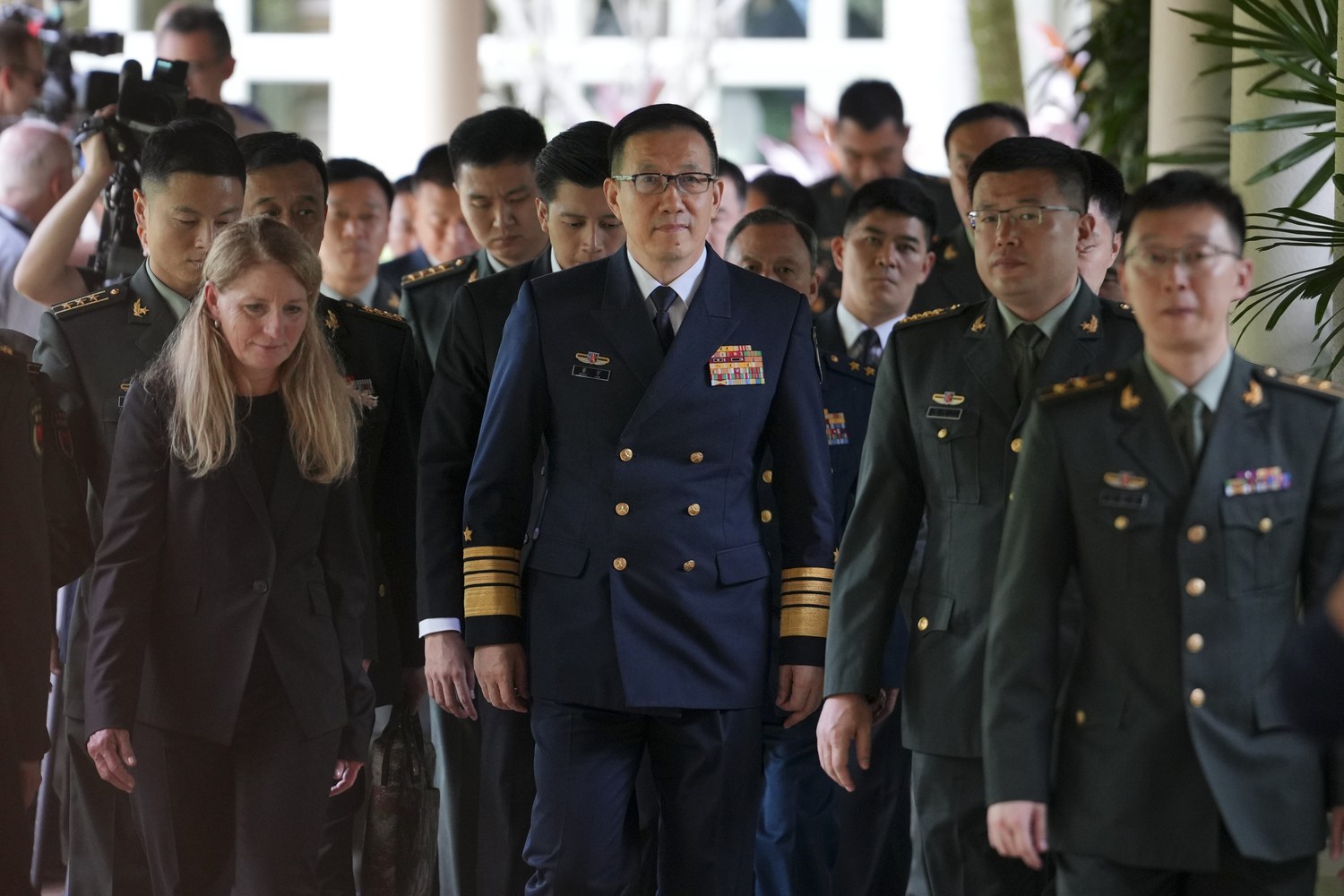
As the years go by, the Shangri-La Dialogue has shifted its focus more towards China, mirroring the nation's rising power and the world's attention on its strategic moves. While the forum covers various security topics in the Asia-Pacific area, much of the spotlight tends to be on China's military growth, territorial conflicts, and geopolitical maneuvers. This emphasis stems from China's active involvement in the South China Sea, its expansive Belt and Road Initiative, and its evolving military strength, all of which greatly impact regional and global safety.
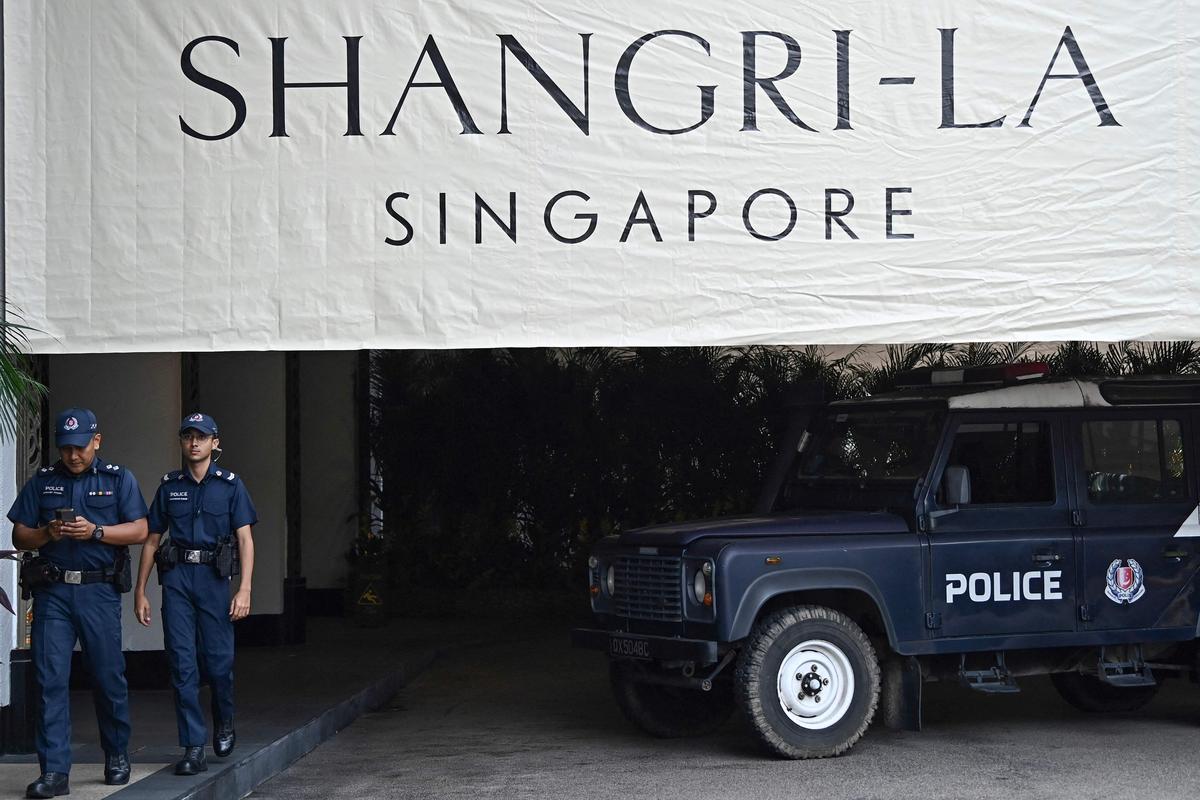
China at Shangri-La: Admiral Dong Jun Takes the Stage
Admiral Dong Jun's Background
-
China's inaugural naval officer-turned-defense minister, Admiral Dong Jun, steps onto the global stage.
-
Dong brings a wealth of military expertise, having served in crucial regions like the South China Sea and the Taiwan Strait.
-
His previous roles include deputy commander of the Southern Theatre Command and service in the East and North Sea Fleets.
Anticipated Dialogue with US Secretary of Defense
-
Admiral Dong is set to engage in talks with US Secretary of Defense Lloyd Austin during the Shangri-La Dialogue.
-
This meeting marks their first face-to-face discussion following an earlier virtual exchange in April.
-
Details about the dialogue remain undisclosed, heightening anticipation on both sides.
Challenges and Expectations
-
While Admiral Dong lacks membership in the Communist Party's Central Military Commission, he holds a pivotal role in military diplomacy.
-
His performance at the dialogue is crucial for projecting strength and solidifying his credentials.
-
Despite limited influence over operational decisions, his presence signifies China's diplomatic engagement on the global stage.
Military Drills and International Response
-
China's participation in the dialogue follows large-scale military exercises near Taiwan in response to President William Lai Ching-te's provocative remarks.
-
The drills elicited criticism from various nations, including the US, Japan, Australia, and the European Union.
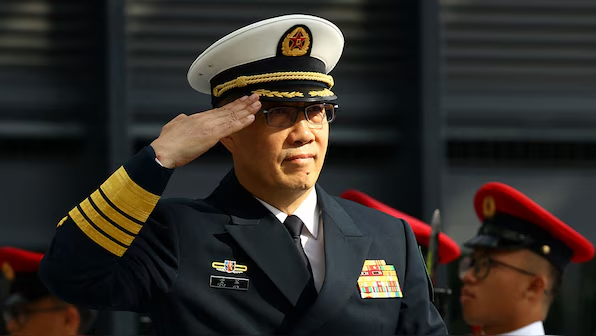
Putting the ball on the US court
Taking the Lead: China's Perspective
-
US Accountability: The Chinese media underscores that the responsibility for repairing US-China relations lies primarily with the United States.
-
Call for Genuine Dialogue: China emphasizes the importance of sincere communication from the US regarding its core interests and security concerns.
-
Meaningful Dialogue Over Political Gestures: Chinese experts, as cited by the Global Times, stress the need for substantive dialogue rather than superficial engagements aimed at political optics.
Acknowledging Positive Steps
-
Recognition of Efforts: Despite tensions, Chinese state media acknowledges Defense Secretary Austin's commitment to meeting Admiral Dong in person at the Shangri-La Dialogue.
-
Diplomatic Thaw: Relations have shown signs of improvement since the summit between Chinese and US leaders in November 2023, marking a gradual thaw from the freeze initiated in August 2022.
-
Importance of Engagement: The decision to meet in person highlights the importance of direct engagement, especially given recent diplomatic history.
Key Issues on the Table
-
Taiwan Concerns: China expects discussions to address the sensitive issue of Taiwan, which holds significant importance in bilateral relations.
-
South China Sea: Another crucial topic for discussion is the South China Sea, reflecting the complex dynamics between the two nations in the region.
By delineating China's stance and expectations ahead of the Austin-Dong meeting, it becomes clear that the ball is in the US court to foster meaningful dialogue and address core concerns for a constructive way forward.
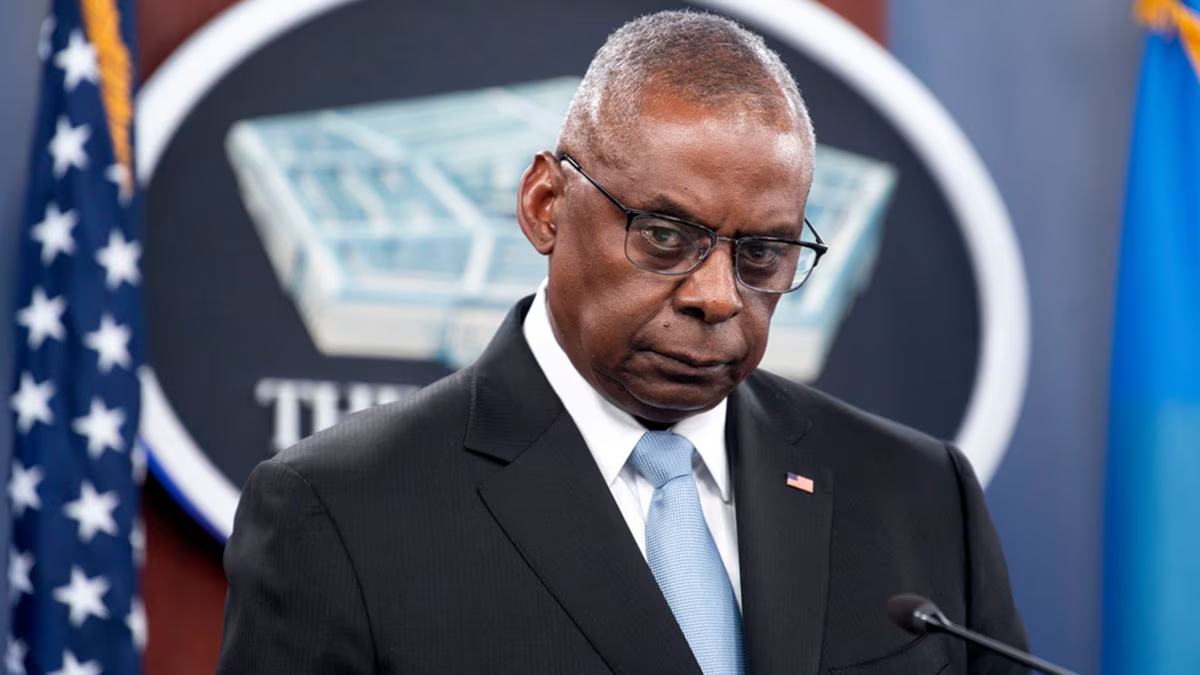
Past concerns and criticisms
In May 2023, tensions between the United States and China reached a tipping point as Defence Secretary Austin opted not to meet with his Chinese counterpart, Li Shangfu. This decision followed the fallout from former Speaker Nancy Pelosi's controversial visit to Taiwan. The refusal to engage in dialogue deepened existing strains in the relationship.
Escalating Tensions: Incidents and Fallout
-
February 2023 witnessed a concerning development with the discovery of a Chinese surveillance balloon over US territory. This incident added fuel to the fire, exacerbating the already strained relations between the two global powers.
-
Close encounters between US and Chinese fighter jets over the South China Sea, along with naval vessels' movements in the Taiwan Strait, further heightened tensions. These incidents underscored the volatile nature of the geopolitical landscape in the region.
-
The 2022 Shangri-La Dialogue proved to be a challenging arena for China, marked by significant criticism from various nations.
International Criticism and Responses
-
Countries such as Australia and Canada openly condemned Beijing for its alleged violations of international laws. They cited dangerous maneuvers by Chinese jets that endangered the safety of military personnel, sparking widespread concern.
-
Japanese Prime Minister Fumio Kishida's announcement reflected growing unease in the region. Japan declared its intent to bolster its defense budget and acquire advanced weaponry, citing the need for self-protection amidst escalating tensions.
The South China Sea Conundrum
The South China Sea emerged as a focal point of maritime security tensions, with China's militarization efforts on artificial islands escalating concerns. China's actions in the region, including the militarization of artificial islands within the expansive waterway spanning 1.3 million square miles, intensified regional anxieties. Countries like Japan, Australia, and Canada navigate strategies to address maritime security threats.
The cumulative effect of diplomatic incidents and military posturing underscores the fragility of US-China relations and the broader geopolitical tensions in the Asia-Pacific region.
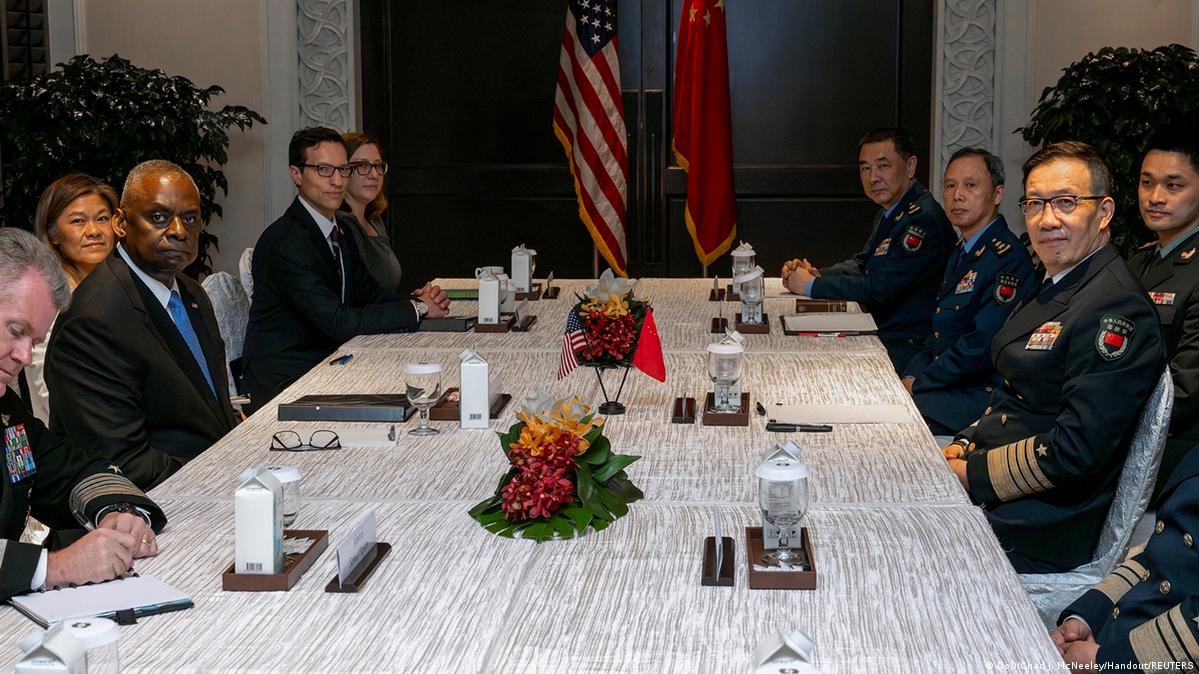
Why is the Shangri-La Dialogue significant this year?
The Shangri-La Dialogue, a pivotal platform for discussing global security challenges, assumes heightened importance this year against the backdrop of various intricate international issues. Here's why the 2024 edition of this dialogue is particularly significant.
Key Global Issues:
-
US-China Relations: The evolving dynamics between the world's two largest economies continue to shape global geopolitics, with implications for trade, security, and strategic alliances.
-
China-Taiwan Tensions: Mounting tensions between China and Taiwan add a layer of complexity to regional stability, warranting close attention from international stakeholders.
-
Russia-Ukraine War: The ongoing conflict between Russia and Ukraine underscores the persistent challenges to European security and stability.
-
Unrest in Myanmar: Internal turmoil in Myanmar adds to the region's instability, with implications for regional security and humanitarian concerns.
-
US Role in the Indo-Pacific: The United States' strategic posture in the Indo-Pacific region, particularly in light of its pivot towards Asia, influences regional dynamics and alliances.
-
Maritime Security: Ensuring maritime security in the Indian and Pacific oceans remains a pressing concern amid increasing incidents of piracy, territorial disputes, and environmental challenges.
-
Middle East Tensions: Escalating tensions in the Middle East contribute to global instability, affecting energy markets, regional security, and diplomatic efforts.
Keynote Speaker and Focus:
-
Philippine President Ferdinand Marcos Jr: President Marcos Jr's keynote speech at the 21st IISS Shangri-La Dialogue underscores the Philippines' stance on critical regional issues, particularly the South China Sea dispute.
-
South China Sea Dispute: President Marcos Jr is expected to reaffirm the Philippines' position on the contested South China Sea, highlighting concerns over territorial claims and maritime security.
Tradition and Legacy:
-
Three-Day Summit: The Shangri-La Dialogue spans three days, providing ample opportunity for high-level discussions, bilateral meetings, and strategic deliberations.
-
Keynote Address: The summit traditionally commences with a keynote address by a prominent figure, setting the tone for discussions. Past addresses have covered a range of topics, from regional security to bilateral relations.
-
Historical Context: Prime Minister Narendra Modi's 2019 address marked a significant moment in the dialogue's history, symbolizing India's growing role in shaping regional security dynamics and fostering multilateral cooperation.
Against the backdrop of complex global challenges, the Shangri-La Dialogue serves as a crucial forum for fostering dialogue, cooperation, and strategic partnerships. The participation of key leaders and stakeholders reflects the significance of collective efforts in addressing regional and global security concerns.
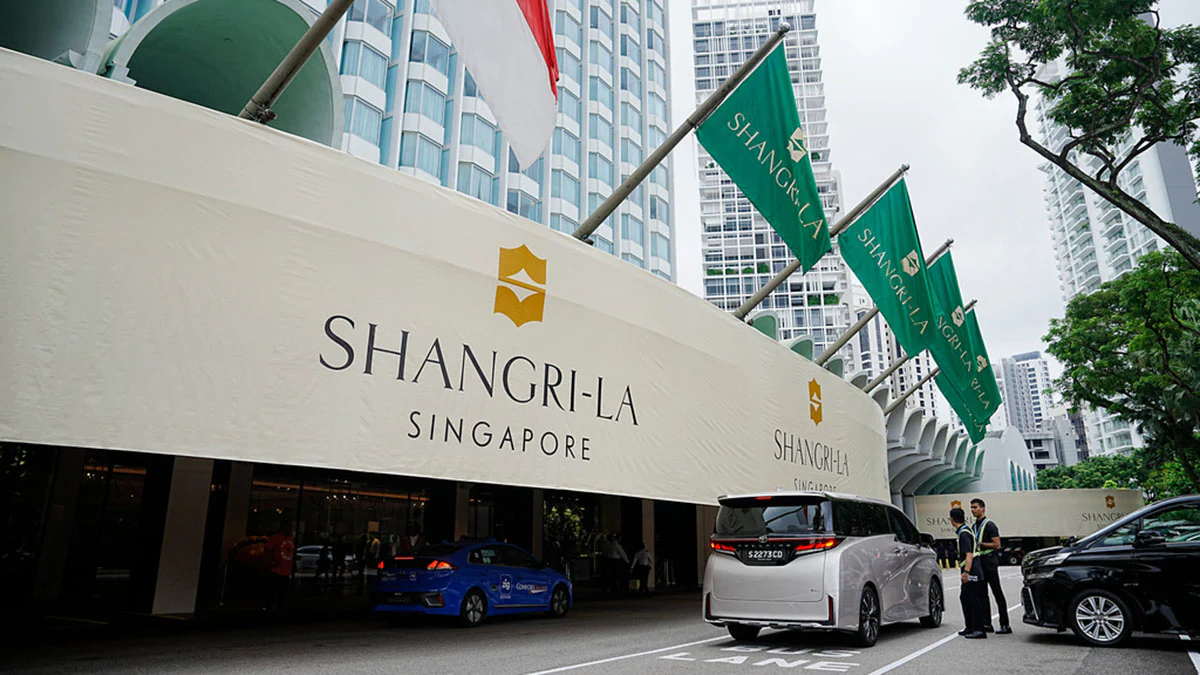
Birth of the Shangri-La Dialogue
In the landscape of global security discourse, the birth of the Shangri-La Dialogue stands as a testament to visionary leadership and a palpable need for open dialogue. In 2001, Sir John Chipman, then at the helm of The International Institute for Strategic Studies (IISS), discerned a critical vacuum in the Asia-Pacific region. He perceived an imperative for a platform where defense ministers and military leaders from 28 diverse nations could converge to deliberate upon regional security concerns.
Collaboration and Inception
-
Outreach Initiatives: Initial efforts focused on engaging ASEAN members, extending invitations to establish a regional security framework.
-
Singapore's Enthusiastic Embrace: Singapore, under President SR Nathan, eagerly supported the concept, eventually becoming the host country.
-
Inaugural Planning: Chipman presented the idea to President Nathan in February 2001, receiving committed support until IISS could independently manage the conference.
Birth at the Shangri-La Hotel
-
Selection of Venue: The iconic Shangri-La Hotel in Singapore was chosen as the venue, lending its name to the dialogue.
-
Inaugural Dialogue: The first dialogue in 2002 witnessed participation from 14 defence ministers and 160 delegates, with the United States represented by its deputy defence secretary.
Evolution and Expansion
-
Growing Participation: Over the years, the dialogue expanded its invitation list and sessions, attracting high-level officials from an increasing number of countries.
-
Inclusion of China: By the fifth year, China's presence became notable, marking a significant milestone in the dialogue's inclusivity.
-
Global Engagement: The dialogue now attracts diverse participants, including legislators, academics, journalists, and business delegates worldwide.
Present and Future
-
Premier Platform: The Shangri-La Dialogue has evolved into a premier platform for public policy development and discussions on defence and security in the Asia-Pacific region.
-
Upcoming Event: The forthcoming event, scheduled from 31st May to 2nd June in Singapore, promises to continue fostering dialogue and cooperation on regional security challenges.
Amidst a backdrop of global tensions and shifting power dynamics, the Shangri-La Dialogue of 2024 emerges as a pivotal stage where China's rising influence takes center spotlight, emphasizing the imperative for constructive dialogue and strategic cooperation in navigating complex security landscapes.
With inputs from agencies
Image Source: Multiple agencies
© Copyright 2024. All Rights Reserved Powered by Vygr Media.

